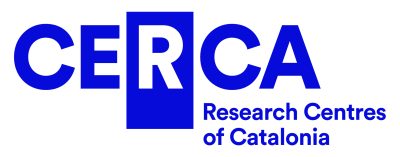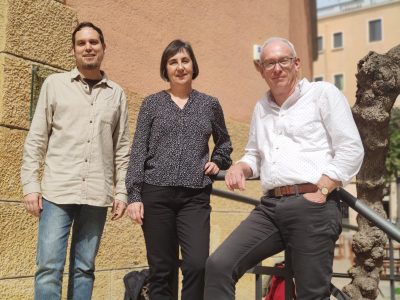
On March 21, 2024, ICAC-CERCA hosted a keynote session by Professor Peter Van Dommelen, an internationally renowned expert recognized for his contributions to the study of Ancient protohistoric civilizations in the central-western Mediterranean—primarily Phoenician, Carthaginian, and Nuragic—and with notable works on the island of Sardinia.
He is particularly known for applying postcolonial archaeological theory to various colonial realities, but also for studying the rural world in the Phoenician sphere and for using the concepts of materiality, material culture, and cultural exchange, through which Van Dommelen focuses on the processes of interaction between diverse communities and the phenomena by which new colonial realities, identities, and situations emerge
Joukowsky Family Professor of Archaeology and Professor of Anthropology at Brown University (USA), he is currently a visiting professor at Pompeu Fabra University. Maria Carme Belarte (ICREA-ICAC-IEC, MIRMED research group) and Samuel Sardà (URV, GRESEPIA research group) did not miss the opportunity to invite Van Dommelen to Tarragona and be able to firsthand learn about the latest developments in his research. With great anticipation, the ICAC Auditorium completed its capacity, with nearly ninety people, including students, researchers, and interested individuals.
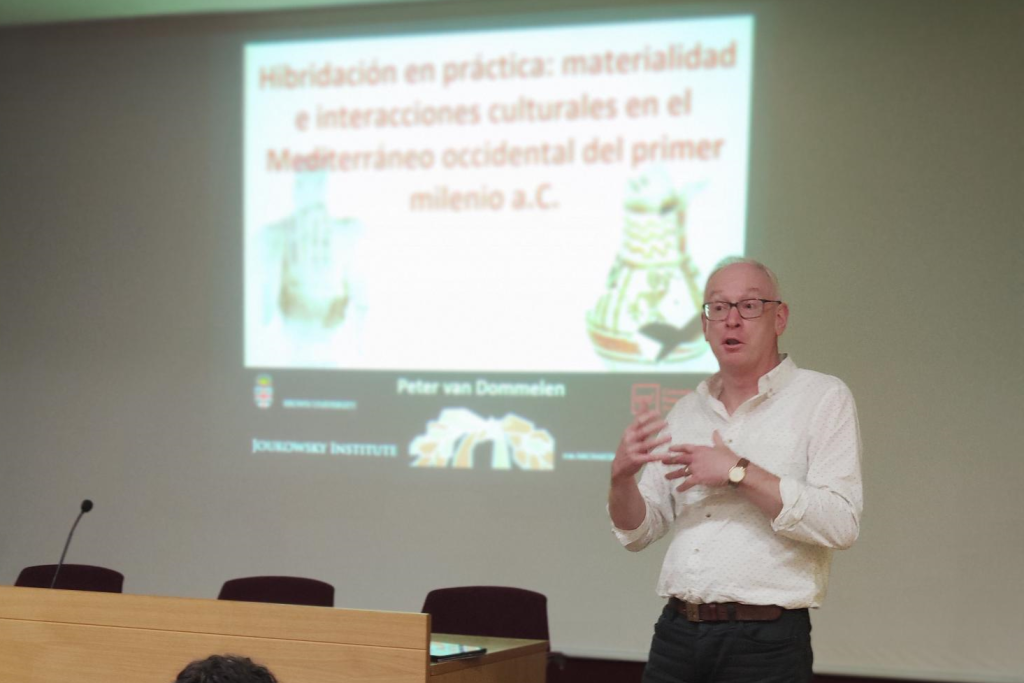
Peter Van Dommelen, cutting-edge research in the field of postcolonial studies
Peter Van Dommelen leads cutting-edge research in the field of postcolonial studies. His contributions to the knowledge of the Ancient Central-Western Mediterranean help us understand how local societies developed various strategies to the newly arrived population. Furthermore, his theories have changed the widespread view of the role of local elites, which cease to be considered passive actors in colonial and cultural exchange processes.
Peter Van Dommelen’s research has changed the perception of local cultures and the dynamics that occurred when they came into contact with the commonly called “colonizers.”
The keynote session followed a very reflective approach to issues such as material objects’ social significance, the veracity of evidence, or the importance of considering the local perspective regarding cultural exchange dynamics. Professor Van Dommelen was very dynamic and approachable, encouraging people in the audience to debate his ideas and ask questions about possible implications and specific case studies.
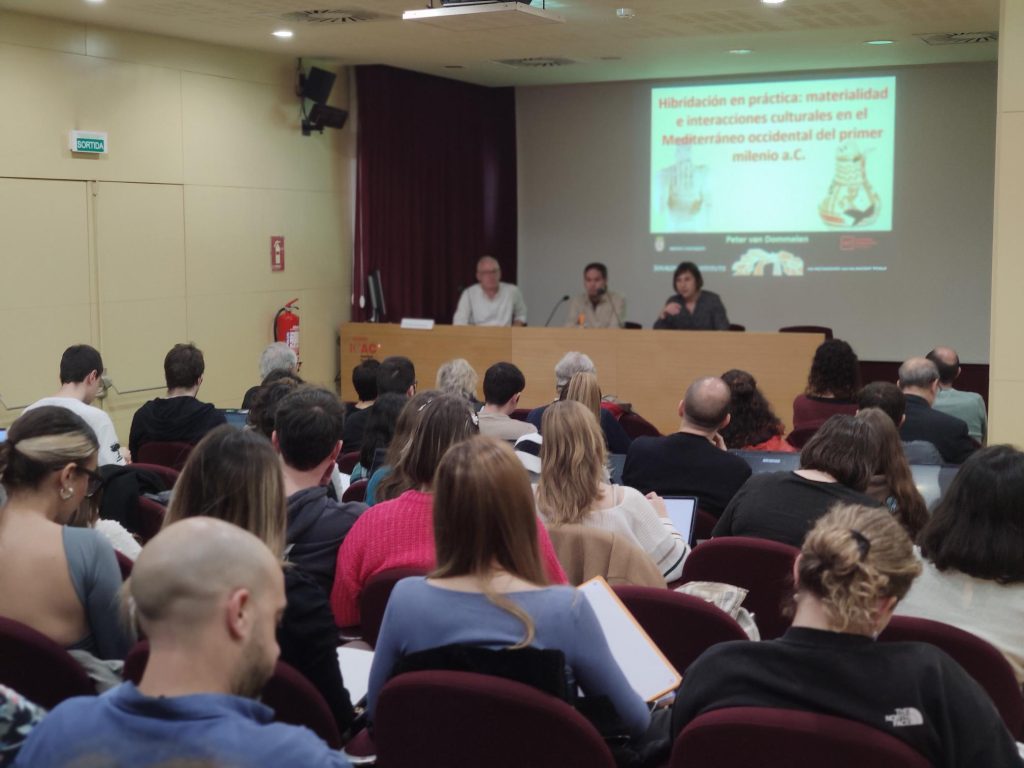
In his presentation titled “Hybridization in Practice: Materiality and Cultural Interactions in the Western Mediterranean of the First Millennium BC”, Van Dommelen emphasized the importance of contextualizing and questioning the objects found in archaeological excavations. In addition to having a function and a cultural identity, material objects hide a series of personal stories that speak to us about the societies that created them and the people who exchanged and used them. His analytical perspective takes into account that these objects may have been subjected to processes of reinterpretation and revaluation by the new societies in which they were introduced.
The Mediterranean offers an unparalleled framework for studying the effects of cultural hybridization
Since the Neolithic period, when the first navigations were archaeologically identified, the Mediterranean has been a very active area in terms of contacts and cultural exchanges; as a result of both commercial activity and armed conflicts or forced migrations, caused by the lack of arable land and constant demographic pressure.
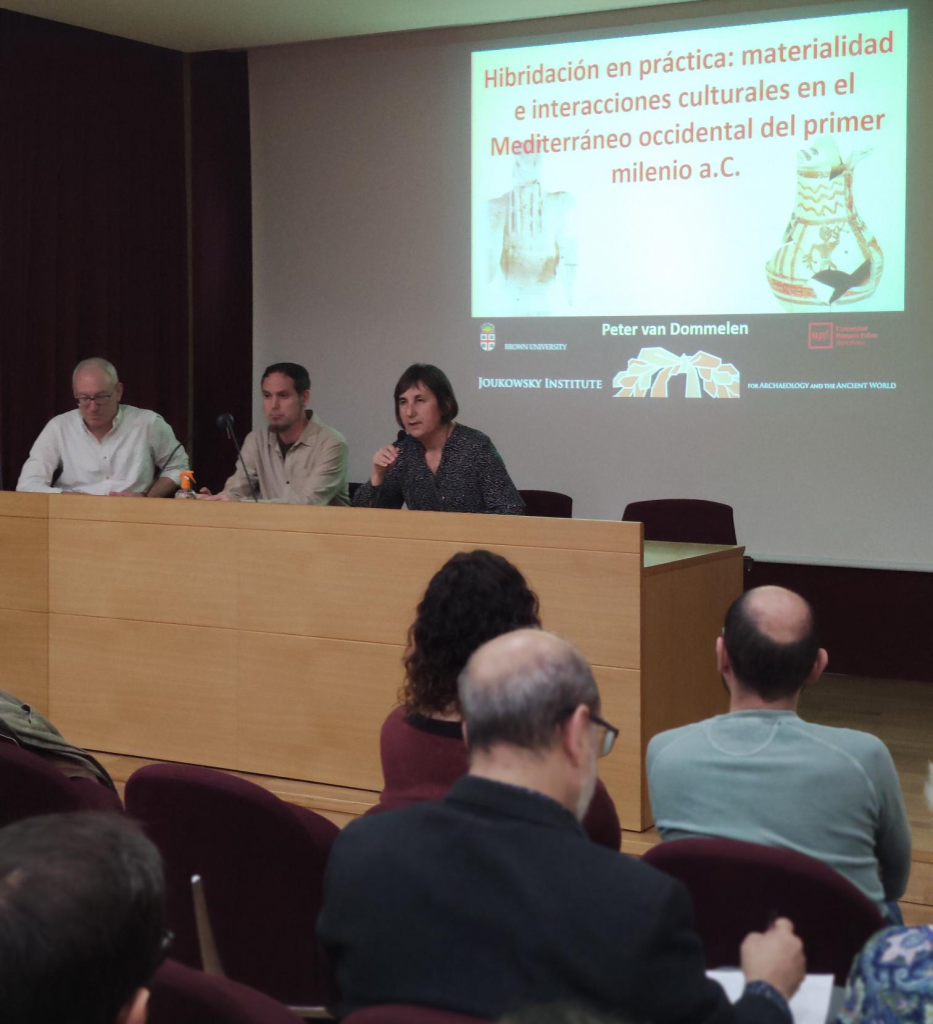
About the Catalan Institute of Classical Archaeology (ICAC-CERCA)
The Catalan Institute of Classical Archaeology (ICAC-CERCA) is a CERCA center established as a consortium in 2003 by the Government of Catalonia and the Rovira i Virgili University. It is a Catalan institution with an international scope, at the forefront of research and conservation of archaeological heritage. Its headquarters are located in Tarragona, a city recognized as a UNESCO World Heritage Site in the year 2000. Its researchers work to understand the past through the study of archaeological remains and promote the preservation of the historical legacy. We are CERCA!
For more information, visit www.icac.cat.
